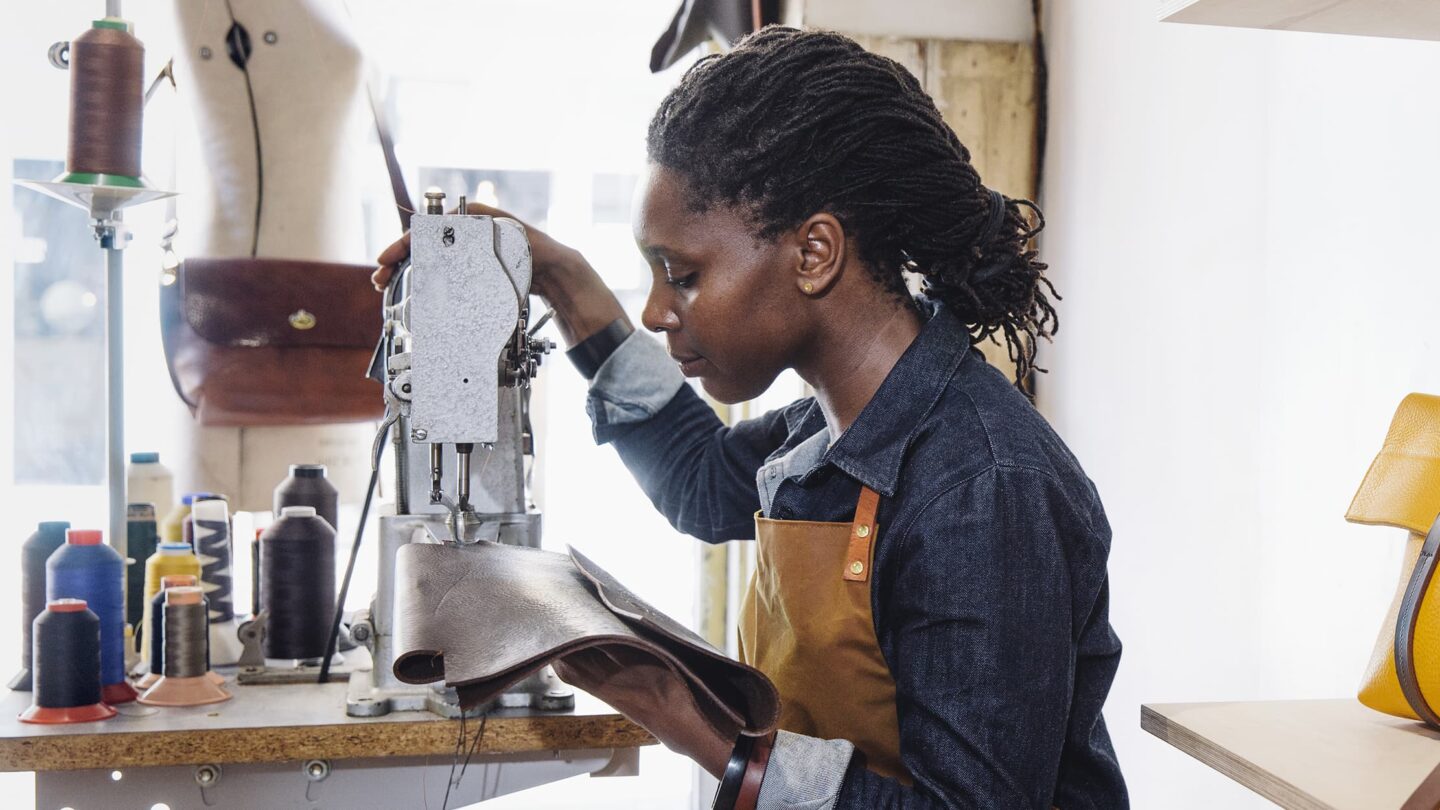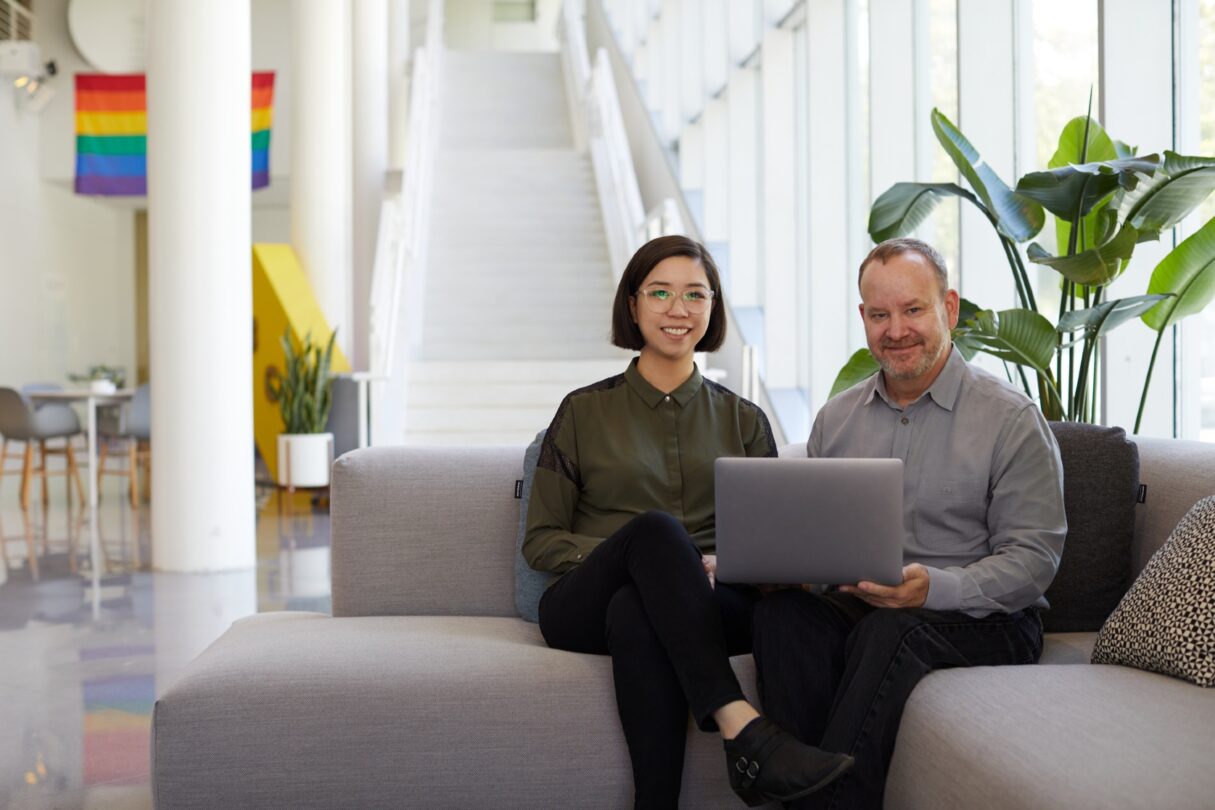How female founders can find funding for their businesses
Learn from female founders why it can be such a challenge to get funding, and discover what you can do now to grow your small business.

It’s fantastic to see more female founders in Ireland winning investment for their businesses.
In 2021, 55 tech startups and scale-up businesses with a female founder or co-founder raised €230m via angel investment, venture capital and grants. And that figure is up 120% on 2020 (€105m). according to a report by TechIreland.
However, funding that goes to all female-founded businesses is still extremely low. In 2021, it accounted for just 2% or $64bn of venture capital funding.
That means if you’re not sure how to go about growing your business, or are struggling to raise funding, you’re not alone.
In this article, we dive into the many challenges female founders are facing when it comes to getting investment, what needs to change to fix those issues, and what you can do right now to find funding for your business.
Here’s what we cover:
- What funding is available?
- The challenges facing female founders around winning investment
- What needs to change for more women to get investment?
- What female founders can do now to find funding for their businesses
- Final thoughts on getting funding
What funding is available?
Venture capital
Also known as VC, venture capital is a form of private equity and provides funding to new businesses that don’t have access to other types of funding, but are believed to have long-term growth potential.
Unlike bank loans, you don’t need cash flow or assets to secure VC funding.
But in return for the high risk, VC investors take a significant share of the company equity.
Angel investing
An angel investor is a high-net-worth individual who provides funding for small startups or entrepreneurs, typically in exchange for ownership equity in the company.
Angel investors could be people close to you, such as family and friends, or you could find them online through angel investor networks.
Angel investors typically use their own money, unlike venture capitalists who take care of pooled money from many other investors and place it in a strategically managed fund.
Loans and grants
With a business loan, you borrow a lump sum of money from a bank and then repay this sum with added interest. You can borrow funds for a wide variety of commercial activities.
A business loan can range from €1,000 to several million, with terms varying from a one-month repayment up to 15 years. You generally have to provide company financial statements to prove your ability to repay.
Business grants are often awarded by the government and, unlike a business loan, they do not need to be repaid.
To apply, you’ll need to write a business grant proposal, which explains how you meet the qualifying criteria, your aims and how you’ll quantify success.
And you need to back this up with a solid and realistic business plan, complete with sales projections and cash flow forecasts.
Crowdfunding
This is the practice of raising money from a large number of people who each contribute a relatively small amount, typically via the internet from platforms such as Seedrs and Crowdcube.
Louise Doherty used crowdfunding to help build her company Yoller, an intelligent social planning platform.
She says: “I found with crowdfunding, it was much easier to think of it like a marketing campaign. You have a preparation period, you do all of the assets, you build the relationships, you have this kind of period of going live.
“Then afterwards, it’s just a project plan.”
The challenges facing female founders around winning investment
One of the biggest challenges comes from the lack of female VC and angel investors, and means founders are often presenting pitches to only men in the room.
The 2022 European Women in VC report states in western Europe, a whopping 81% of General Partners at VC firms, the ones making the investment decisions, are male.
Dr Zara Nanu decided to go down the traditional investment route to fund her business, GapSquare, a tech company that helps to build truly inclusive workplaces.
She says: “I didn’t expect to walk into a room to pitch my investment, and people are confusing me for the waitress, making pitching very uncomfortable… Occasionally over the past five years, I would think, ‘Maybe things have changed. Maybe I can go back and pitch.’
“And then you get to a room that is full of investors that are a lot of times male, white middle-class men who would challenge the existence of the gender pay gap to begin with, before you even get to why companies need a solution to it.”
A study of the TechCrunch annual startup funding competition found that venture capitalists posed different types of questions to male versus female founders.
They tended to ask men about the potential for gains (promotion questions) and women about the potential for losses (prevention questions).
For example, when asking about projections, a promotion question would be ‘what major milestones are you targeting this year?’ and a prevention question would be ‘how predictable are your future cash flows?’.
This difference in questioning appears to have substantial funding consequences.
They observed that founders who fielded mostly prevention questions went on to raise an average of $2.3m in funds, about seven times less than the $16.8m raised on average by those who were asked mostly promotion questions.
Another factor affecting the value of funds raised by women is the high proportion who are running businesses in sectors that are seen as high risk by investors, including healthcare (making up nearly 50%), education, and social services, which don’t tend to see the same level of investment as technology and manufacturing.
And within these stereotypically male industries, female founders lack networks and mentorship opportunities.
Sarah Turner, co-founder of Angel Academe, is combatting this issue with her female-focused investment network.
She says: “If you’re a female founder presenting a software business or non-traditional business, we don’t have the successful role models of women building scalable technology businesses.
“All the stereotypes point to Mark Zuckerberg and Bill Gates and people like that.”
Finding the time to dedicate to the time-intensive investment process is another challenge for many female founders.
The 2022 Global Gender Gap Report found women spend on average 55% of their time on unpaid work as a proportion of their total work, compared to 19% for men.
Sharmadean Reid, founder of The Stack World and WAH Nails, says in her experience there’s also an expectation as a female founder to be the face of the business too “which is actually a marketing job”.
She adds: “What people don’t realise is how time-consuming it is to also be the marketing lead influence of your business, as well as doing things like your financial projections, dealing with legal, dealing with accounts, doing team building, hiring.
“Whereas I feel like male founders are allowed to just spend money on paid ads.”
What needs to change for more women to get investment?
We need to change the culture within venture capital firms to be more female inclusive.
Sarah Turner believes “while entrepreneurs have got to pitch confidently by owning pitches and being assertive, there’s a lot we can do to improve the environment in which they have to operate”.
She adds: “We should be conscious about improving diversity in the investor community because we’ve all got bias. I think it’s hardwired, and we need a better appreciation of how women communicate…
“We’ve got to give those speakers the confidence to perform their best. Having more women in the room is just a vital component of that.”
And having more women in the signing-off process when it comes to making investment decisions is an important step, too.
Michelle Kennedy is the co-founder of tech company, Peanut, a safe community for women to share advice and support on fertility, pregnancy, motherhood and menopause.
She says: “The fact that even within venture capital funds, even if you’ve got women associates, principles and partners, unless you have women who are on the investment committee who can say yes or no to deals, then deals will fall off there.”
Support networks and helpful resources are also critical for female founders to find success.
This is one of the reasons why entrepreneur and angel investor Emmie Faust set up the network Female Founders Rise.
She says: “We have so much insight, expertise and value to share with one another, and we can do that in a space that feels safe.
“Female Founders Rise also helps members to connect with angel investors, people working in VCs, and male and female cheerleaders who want to support women and open doors.
“We know that warm intros work much better, so it’s really important that as female founders we can widen our networks.”
Positive change also requires awareness and co-operation from the people holding the power, usually the men in the room.
Rushina Shah has found support from her co-founder of snacking brand Insane Grain.
She says: “He’s a man with more experience than me – 30-plus years in the food and drinks industry. He’s phenomenal. But when we do go for pitches, the questions are often directed towards him.
“But he’s great at saying, ‘Well, no Rushina, this is for you,’ because he knows that maybe I’m being dismissed.”
What female founders can do now to find funding for their businesses
Reach out to your current network
Michelle You, the co-founder of Songkick, decided she wanted half of her fundraising for her second company, Supercritical, to come from women.
But it proved difficult when she struggled to find female angel investors, so she had to look more broadly.
She says: “I asked women in my network who had never invested before. I just told them, I want you to invest in my company. Just write me a cheque for £5,000 if you can.
“I just kind of walked them through what I wanted and what the relationship would be like and how much money I wanted.”
So don’t be afraid to reach out to your current network, even if they haven’t invested before.
Try searching online for investors
Rushina Shah needed to prove her business concept before taking it to VC funding, so she also looked at non-traditional routes first.
She says: “Initially, I reached out to my Instagram followers, which sounds ridiculous, as I only had about a thousand followers. I got four people to respond to me on Instagram, and they ended up all being investors.
“Three men, and one of them a woman, which was great. It got the business off the ground, and I was able to prove the concept.”
So if you’re looking for angel investors, try searching online. You can reach out to people you know via social media or Google search angel investor groups.
Join accelerator programmes and pitch practice events
Sarah Norford-Jones, co-founder of Yeo, a private messaging app, received enormous value from taking part in a cybersecurity accelerator.
She says: “Not only did they help us hone our pitch and how to present what investors were looking out for, they put us in front and gave us access to investors, as well as a sounding board.
“We got to bounce ideas off from that experience, and we completely pivoted our business.
“It is a bit nerve-wracking standing up in front of a massive crowd of people and pitching, but it does give you that boost where you think, actually, I got this. I can go into a room and do this.”
The key to a successful pitch is being able to sell your investors on the benefits of your product, so it helps to think outside the box if you’re pitching a female-focused product to men.
Rushina Shah was inspired by the way two female founders pitched their lingerie company.
She says: “All of the VCs in the room were men, and they had pitched three or four times before, all to men. They were trying to pitch lingerie, and obviously, these men didn’t understand the problem they were trying to solve.
“So, they took a pair of shoes, and they put them underneath these guys’ chairs.
“At the start of the pitch, they said, ‘Ok, what we want you to do is put those shoes on.’ And the men said, ‘Well, this is a size too small for our feet.’
“And they said, ‘Well, put them on for the duration of the pitch because that’s how women feel when they’re wearing the wrong bra.’”
When you’re practising your pitch, try to focus on promoting your vision. You could experiment with answering prevention style questions and putting a promotional spin on them.
Get support from female-focused organisations
And remember, there are investors out there who are eager to help you grow, so look for female-focused investment firms such Angel Academe and the signatories of the Investing in Women Code, who have made commitments to supporting female entrepreneurs.
You can also gain valuable wisdom from other founders by joining a free network such as Female Founders Rise with Emmie Faust.
She says: “We champion female founders and provide resources such as masterclasses on funding, and pitch deck reviews in addition to office hours. We also run a regular LinkedIn Audio event every Friday.”
Final thoughts on getting funding
While we still have a way to go to change the investment landscape, there are a growing number of groups dedicated to help you get the investment you need, including incubators and accelerators, female-focused investment funds and mentoring organisations.
And the important research being done helps to shine a light on the inequities, motivating venture capital firms and other organisations to take action.
You don’t need to settle for investors who don’t value your leadership and vision because there will be others out there who are just the right fit for your business.
Small business toolkit
Get your free guide, business plan template and cash flow forecast template to help you manage your business and achieve your goals.






